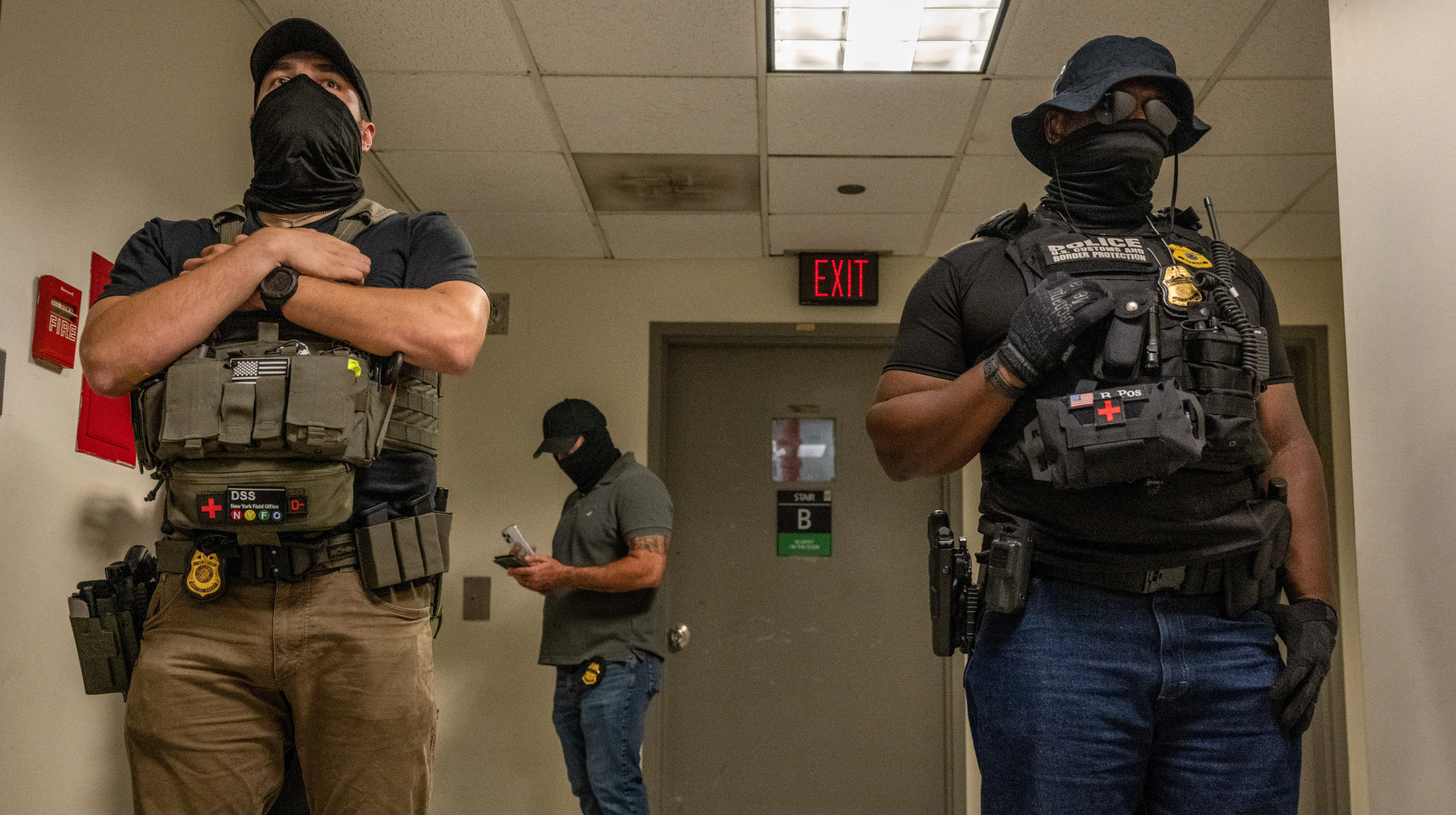DHS preps for major ICE expansion, rankling local law enforcement
As the Trump administration positions ICE as the primary federal police force, its recruitment efforts have been met with a less-than-enthusiastic response


A free daily email with the biggest news stories of the day – and the best features from TheWeek.com
You are now subscribed
Your newsletter sign-up was successful
President Donald Trump has made little secret of his vision for an immigrant-adverse America — one in which the Department of Homeland Security operates as a vast domestic police force to that anti-migratory end. Accordingly, the president's "big, beautiful bill" has supercharged the country's immigration enforcement efforts, more than tripling ICE's $8 billion annual budget to $28 billion in the coming year while boosting DHS funding to an astonishing $165 billion over the next decade. But while the administration pushes ahead to place ICE at the top of the federal law enforcement hierarchy, a host of practical challenges for such a dramatic expansion have emerged.
Recruitment efforts are 'just not feasible'
ICE's new budget makes it the "single-largest law enforcement agency in the country," said USA Today. It's now larger than the FBI, DEA, ATF and others "combined." The agency is "pushing the message that it wants 'patriotic Americans' to join its ranks," said NBC News, offering "new perks" such as student loan repayments and signing bonuses as incentives. The agency has also dropped age limits for several positions as part of its newly funded push to recruit 10,000 new agents to "carry out Trump's promise of mass deportations" at a pace of one million per year. But the recruitment push "does not reflect the public safety threat," critics contend, and could ultimately "endanger public safety."
Despite the government's best efforts, ICE's "recruitment tactics" have not been "received as warmly" as anticipated by groups like the National Sheriffs’ Association, who worry about federal poaching from "already understaffed local departments," said Scripps News. It's "just not feasible" to expect local law enforcement to be able to compete with DHS signing bonuses, said NSA Executive Director Jonathan Thompson to the outlet, which noted that ICE appeared to be "having some recruitment success."
The Week
Escape your echo chamber. Get the facts behind the news, plus analysis from multiple perspectives.

Sign up for The Week's Free Newsletters
From our morning news briefing to a weekly Good News Newsletter, get the best of The Week delivered directly to your inbox.
From our morning news briefing to a weekly Good News Newsletter, get the best of The Week delivered directly to your inbox.
"Less-funded local departments cannot compete" with ICE's "eye-popping" incentives, CNN said. While some local police don't resent ICE for looking to them as a talent pool, they do take issue with the "way the agency went about it," with targeted recruiting offers to state and local partners working under Section 287(g) of the Immigration and Nationality Act.
Unhealthy growth
No "healthy" law enforcement agency can "grow quickly," said immigration reporter Garrett Graff in his "Doomsday Scenario" newsletter — and ICE is "far from a healthy law enforcement agency." Accelerated police hiring sprees "inevitably led to spikes in corruption" as was the case in 1980 Miami and 1989 Washington D.C., which both resulted in "widespread corruption problems that took years to fix."
ICE itself has "historically struggled to fill open positions," said Fordham Law School Professor John Pfaff at MSNBC. Recruiting 10,000 new agents requires "interviewing half a million people," according to a 2017 Department of Homeland Security Inspector General report. Ultimately, if the Trump administration fails to meet its recruitment target, said the Los Angeles Times, DHS "might turn to contractors, the U.S. military and local law enforcement" instead.
A free daily email with the biggest news stories of the day – and the best features from TheWeek.com
Rafi Schwartz has worked as a politics writer at The Week since 2022, where he covers elections, Congress and the White House. He was previously a contributing writer with Mic focusing largely on politics, a senior writer with Splinter News, a staff writer for Fusion's news lab, and the managing editor of Heeb Magazine, a Jewish life and culture publication. Rafi's work has appeared in Rolling Stone, GOOD and The Forward, among others.
